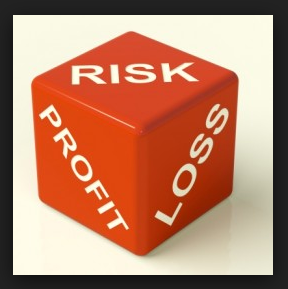 Its often the first question I hear when I talk about trading options: "But aren't options risker than stocks?" As they usually have never traded options, I wonder who told them. Was it their broker? Or just someone like them who repeats without thinking?
Its often the first question I hear when I talk about trading options: "But aren't options risker than stocks?" As they usually have never traded options, I wonder who told them. Was it their broker? Or just someone like them who repeats without thinking?
Let's admit first of all that options are more complicated than stocks. They are tools with many features, requiring study and practice. With stocks, you either buy or sell, and that's about it. Options, however, are complex tools with many features--can you compare a bicycle with an automobile?
Let's also state that with both options and stocks, you can lose all your investment. Stocks can go to zero, and options can do so, too. In the last Big Recession (2008 - 2009), when stocks dropped all the way down to DOW 6,600, those who sold themselves out in the panic lost fortunes. However, smart investors know how to protect themselves and choose strategies that generate profit or protection even in a down market. But not everyone is that smart.
So, it is true? Stocks can only be bought or sold. If you buy and they go up, and you sell, you make a profit. Or you short and they go down, you also profit. You buy and they go down, or sell and they go up, you lose. You have a 50/50 chance of being right. How risky is that? With options you can also lose--if you pick the wrong strategy. Here's the real issue. Options are more complex, and you have to think more about what you are doing.
Stocks are like bicycles. You are either on or off, and there's no benefit to just standing still. Bicycles are more dangerous than cars because they have no protection. Options are like cars--you can forwards or backwards, and you have more protection.
So, here's my evidence that options are safer--if you know what you are doing!
1. With options you can use much less capital to control more stock, so your capital is safer. Right now, I can pay $13,500 to buy 100 shares of AAPL, or control the same number of shares for only $550 by buying a 120 Call. With one, I could lose up to $13,500, the other only $550. Which one is less risk?
2. With options you can buy stock at a lower price than with direct buys. Last time I checked, buying at a lower price reduces risk. In addition, you can lock in the price of a rising stock now. Imagine you were convinced that a stock was going much higher, but you needed to sell something first. You could lock in the price today, and even make a profit by the time your money comes in. Does that mean more or less risk?
3. With options you can generate income on your stock, usually around 4% a month. With extra income, you are reducing your potential loss. I think that's a plus for options.
4. Options can protect against loss, even create a profit, when the market drops. By using Puts and Calls, you can hedge against loss, even make money when the market goes south. That's why many hedge funds and stock traders needing safety use options. Options help stock owners reduce risk! What does that tell you?
Options are insurance for the stock market, and reduce the risk of investing for stock owners. They are themselves not the greater risk.
Warren Buffet once said: "Risk comes from not knowing what you are doing." You need education to trade both stocks and options. That's the truth!
So next time someone says, "Aren't options terribly risky?" tell them about the bicycle and the car.
------------------------------------
Check out our 2017 Spring classes starting in April 4th.
Copyright © 2014-17 Honolulu Options Traders, LLC | All rights reserved worldwide.